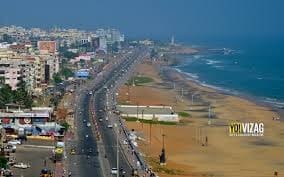11 people were killed and another 5,000 people fell sick after a gas leak from a chemical plant owned by LG Polymers in Vizag in the pre-dawn hours of Thursday morning, in a chilling reminder of the infamous 1984 Bhopal Gas Tragedy.
The leak is being attributed to a technical glitch in the refrigeration unit attached to the styrene tanks at the plant, which was in the process of being re-opened after the 40-day lockdown. Reports say that there was a leakage of styrene gas at around 3 am on Thursday morning at the plant located about 15 km from Vizag. People from five villages around the plant in a radius of 3 km lost consciousness or reported breathing difficulties and even rashes on their body as well as sore eyes after inhaling the gas, which the Andhra Pradesh DGP has termed an accidental leak. According to a statement from the company, the vapourisation of part of the 1,800 tonnes of gas stored at the plant could have happened due to stagnation and changes in temperature inside the storage tank.
What’s the gas: Styrene is a colourless or yellowish oily liquid with a sweet floral odour that’s highly flammable, with the ability to form an explosive mixture at air temperatures above 31 degrees Celsius. However, evaporation of styrene at 20 degrees Celsius can lead to a harmful contamination of the air. A hydrocarbon, it was being used by the company as a raw material in the manufacture of refrigerator parts and lining, as also packaging material for electronics and food materials, among other things. Depending on the duration of exposure, it may cause irritation in the eyes, skin and the respiratory tract as also dryness or cracking of the skin, hearing loss and affects the central nervous system. It is also said to be carcinogenic, which may compromise the immunity system of those affected and make them vulnerable to Covid-19, considering that in Bhopal, 17 of the 20 people who died were gas tragedy survivors. Covid-19 is considered deadly for people with weak immune systems. The gas proved to be fatal for a lot of animals and birds, including livestock and pet dogs.
What’s the penalty? Like in the Bhopal gas tragedy, where the total compensation of $470 million (Rs 715 crore at that time) was barely adequate for the nearly 6 lakh people who were affected, including those who died in the immediate aftermath, in the Vizag gas leak case, LG Polymers may get away by paying just Rs 10 crore for the accident and Rs 25,000 per death or permanent injury, as per its insurance cover, which is led by New India Assurance along with a consortium of other insurers. However, the company may be held liable to pay a far higher compensation should a class action suit be filed against it.
Meanwhile, it was day of industrial disasters in India with 8 workers sustaining burn injuries due to a boiler room blast at NLC India’s thermal power plant in Neyveli, Tamil Nadu while 7 workers — 3 of whom are in critical condition — at a paper mill in Raigarh, Chhattisgarh fell ill after a gas leak at the plant.

